Why people are talking about Jimmy Savile again
- Published
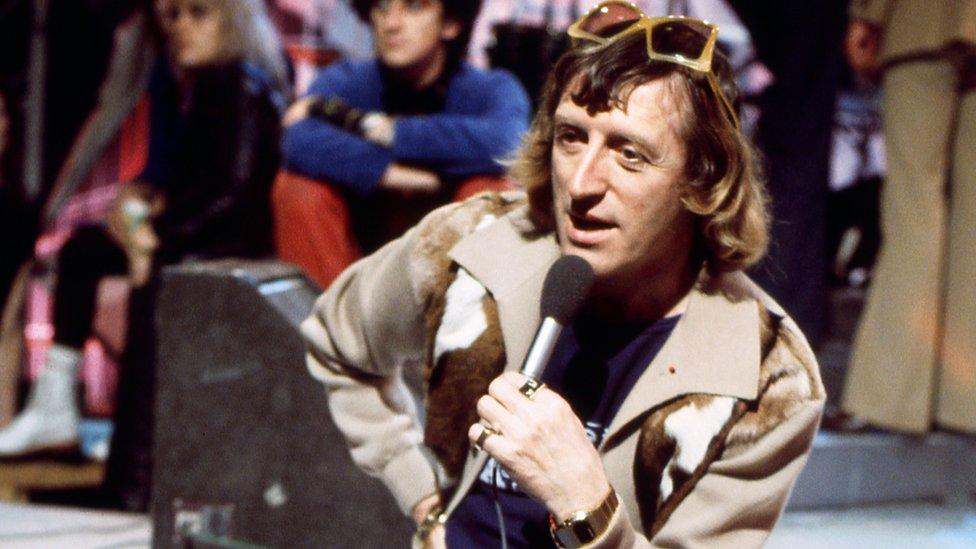
It cost £6.5m to put together, runs to 1,000 pages and has been in contact with nearly 800 people since 2012.
Dame Janet Smith's review into sexual abuse by former Radio 1 presenter Jimmy Savile identified 72 victims, including eight who were raped.
The same report found that ex-TV and radio broadcaster Stuart Hall also abused 21 people while working at the BBC.
The former judge said BBC staff had been reluctant to speak to managers about complaints for years.
Who was Jimmy Savile?
He was a DJ at Radio 1 for 19 years between 1968 and 1987 but was best known for presenting the BBC's music chart show Top of the Pops.
He fronted the first episode in 1964 and re-appeared for the last weekly show in 2006.
He often presented programmes aimed at teenagers and children, such as Jim'll Fix It, and at the time was respected as a charity campaigner.
He was awarded the OBE in 1971 and was knighted in 1990.
Why did the Savile review take place?
The investigation was launched to look at what was going on when Jimmy Savile was working as a radio DJ and TV presenter at the BBC.
He died in 2011 aged 84.
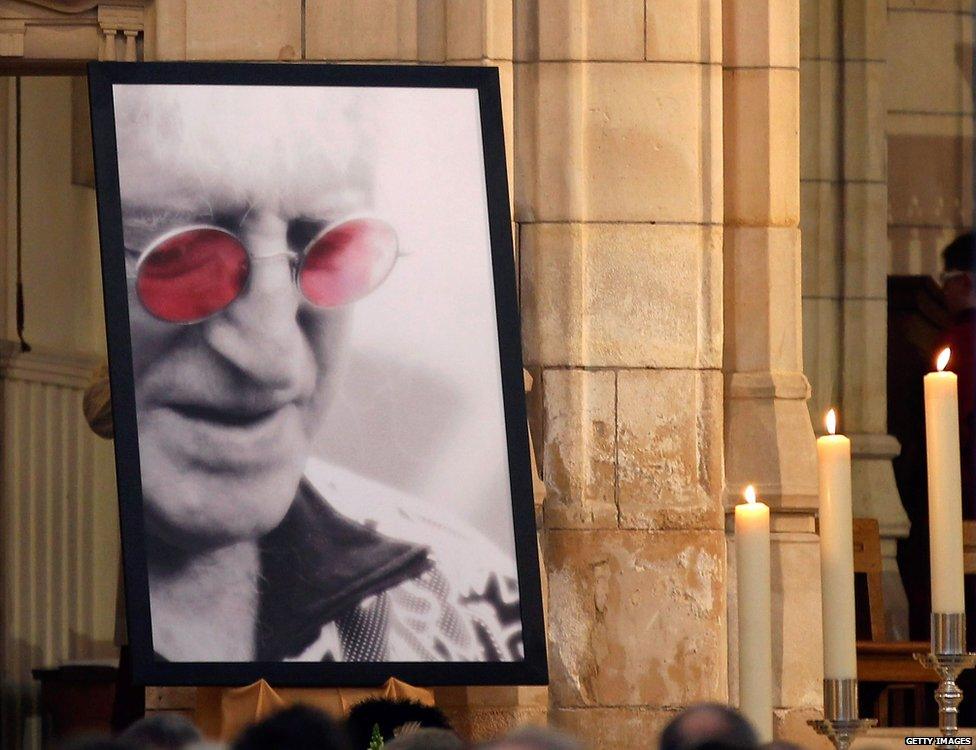
Jimmy Savile's funeral was held at Leeds Cathedral in November 2011
But rumours began shortly afterwards that he had sexually abused children and women for years.
An ITV documentary called Exposure looked into those rumours and some serious claims emerged.
Savile worked for the corporation between the 1960s and 2007, fronting then famous programmes like Top of the Pops, Clunk Click and Jim'll Fix It.
But despite various people coming forward, nothing was ever done while he was alive.
What does the report say about Radio 1?
Jimmy Savile worked on various Radio 1 shows including Speakeasy, a discussion programme for teenagers, between 1969 to 1973.
In the report, Dame Janet Smith mentions the controller of the station at the time, Douglas Muggeridge, who's now dead.
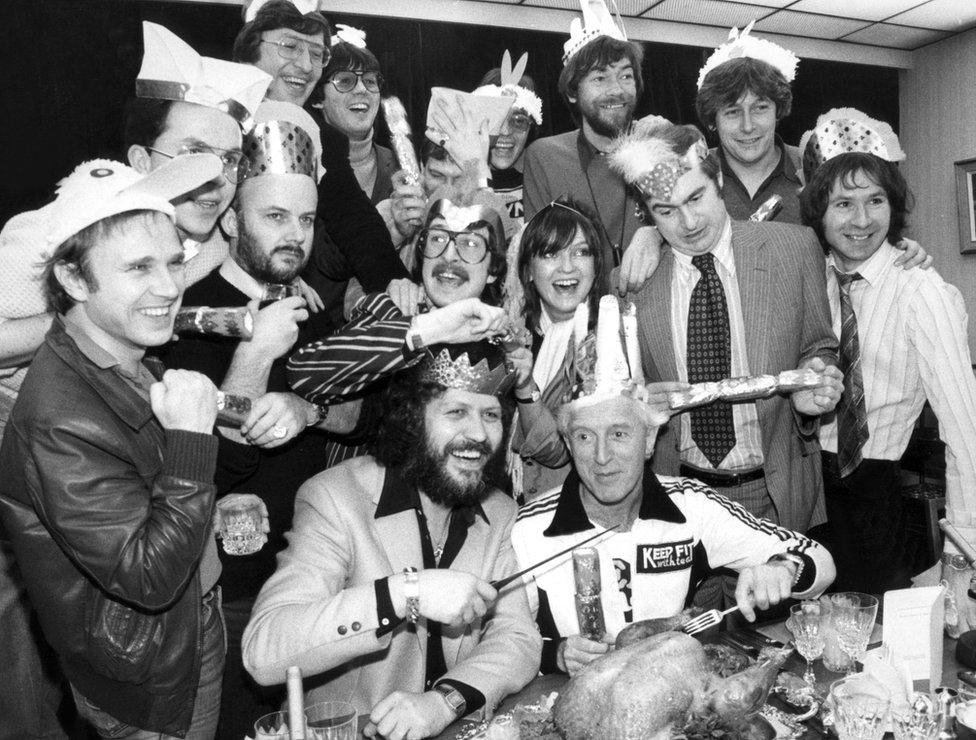
Jimmy Savile takes part in Radio 1's DJ Christmas party in 1980
She said he'd "heard rumours of Savile's sexual impropriety" and had set up to lines of inquiry.
A meeting was held between Savile, Derek Chinnery, then head of programmes for Radio 1, and Doreen Davies, an executive producer.
The report said: "Savile was asked whether there was any truth in the rumours. He said there was not and it appears that Mr Chinnery and Ms Davies believed him."
Didn't Jimmy Savile abuse people outside the BBC as well?
He did.
A series of reports about his abuse in the NHS were released in 2014.
They found that he had abused people aged from five to 75 and had attacked men, women, girls and boys - especially at Stoke Mandeville, Leeds General Infirmary and Broadmoor Psychiatric Hospital.
The Department for Education also released a report into allegations of abuse by Savile at schools.
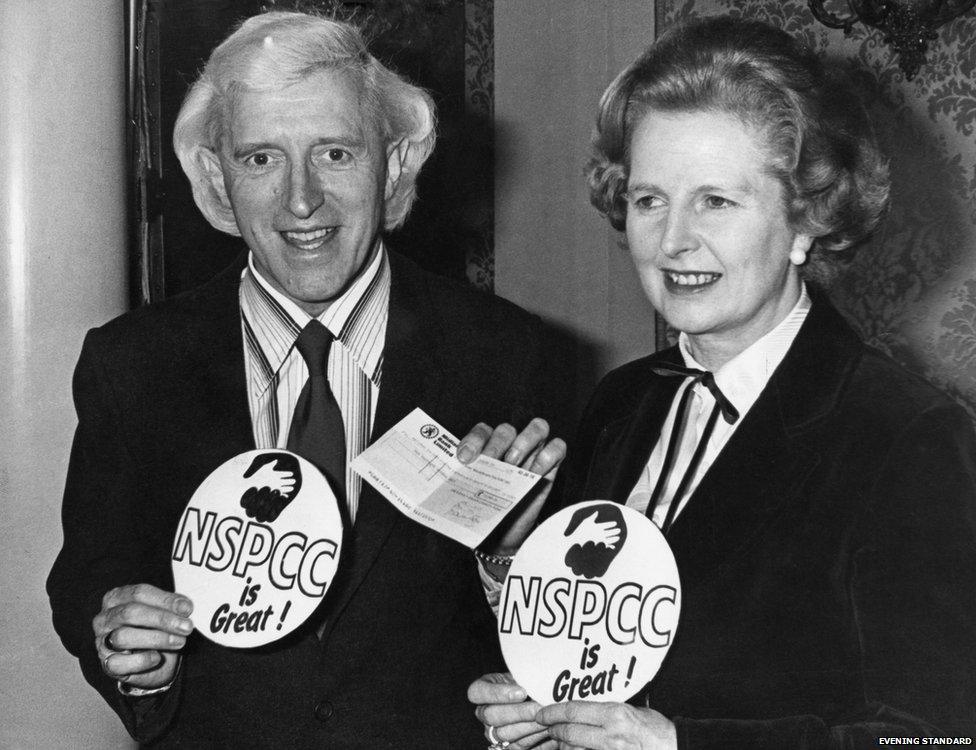
Jimmy Savile hands over a cheque for NSPCC to then prime minister Margaret Thatcher in 1980
Is this the same as Operation Yewtree?
Operation Yewtree is a police investigation into sexual abuse allegations against Jimmy Savile - and others.
It is ongoing and it has led to the conviction of stars like Rolf Harris and Gary Glitter.
The Met's involvement meant the publication of this latest review was delayed by a year.
Why did no-one stop him and are they still at the BBC?
There were various people who were found to be at fault.
Dame Janet Smith, who used to be a judge, said there had been five opportunities to stop Jimmy Savile and Stuart Hall's misconduct.
In particular, two senior managers are criticised for being "aware" or "probably aware" of Hall's sexual assaults on BBC premises.
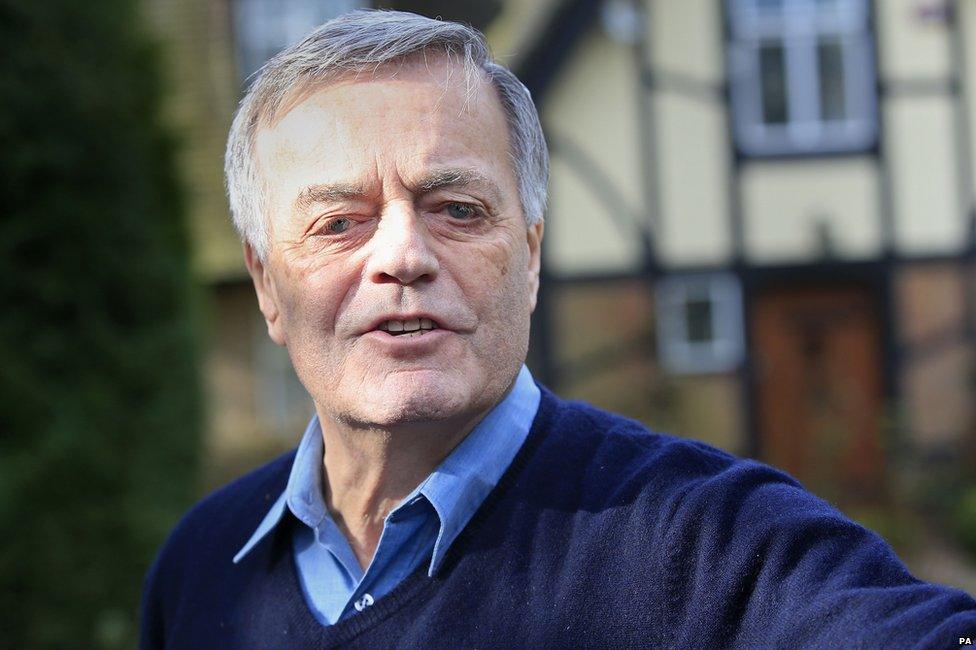
Tony Blackburn has accused the BBC of making him a "scapegoat" for its own "cover-up" of abuse
Meanwhile, Tony Blackburn, who was the first voice on Radio 1, has "parted company" with the BBC for failing to fully co-operate with the Jimmy Savile inquiry.
He was still presenting a show on Radio 2 and says he's going to take legal action after the report disputed some of the evidence he gave to the judge.
How didn't people know about Savile's abuse?
Well they did - but people with information were either told to keep quiet or they weren't believed.
In 1969 and 1971, Dame Janet said newspaper reports revealed that teenage girls were being "picked up" on Top of the Pops by staff members.
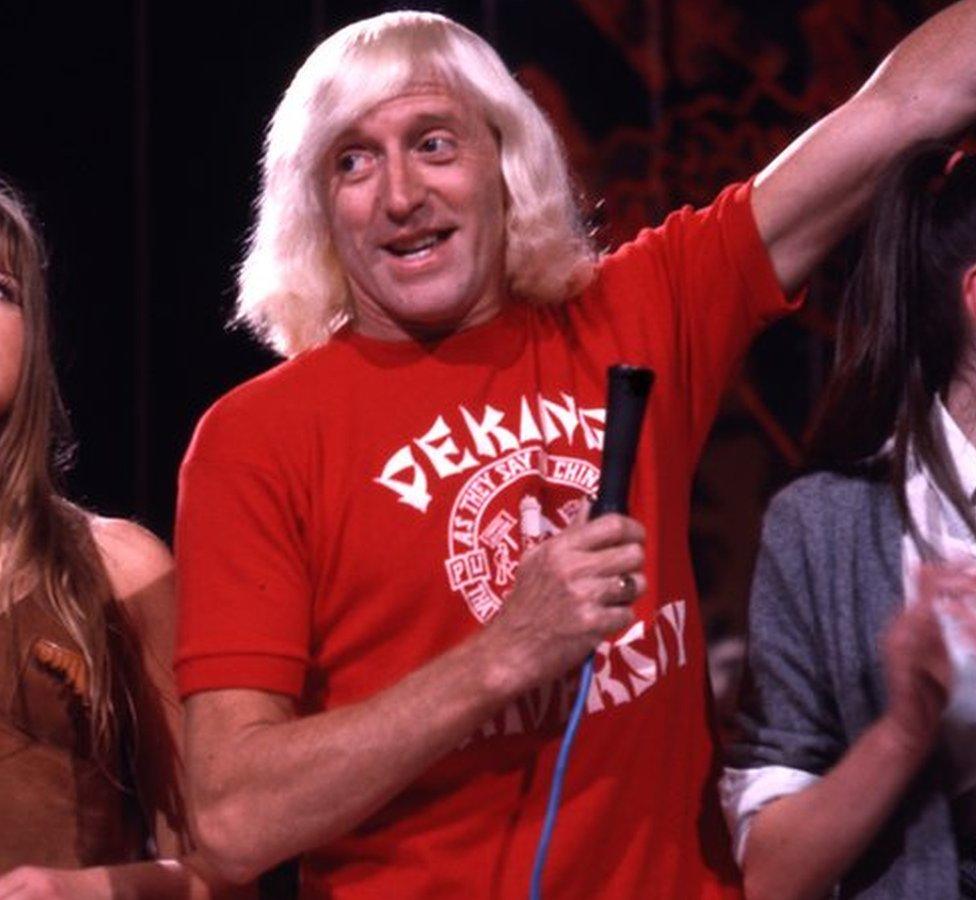
Jimmy Savile with Top of the Pops audience members in the 1970s
In the 1970s a producer who had told managers about Savile's behaviour was told "not to be silly".
Then in late 1989 or early 1990 Savile stuck his hand up a female junior employee's skirt at Television Centre.
The woman complained to her boss but was told "keep your mouth shut, he is a VIP".
Why was he never charged with any offences while he was alive?
In 2014 North Yorkshire Police apologised for missing several opportunities to prosecute Jimmy Savile over claims of historical sex abuse of children in Scarborough.
A report released a year earlier also found that several police forces had mishandled complaints and missed opportunities to question Savile between 1963 and 2007.
They included anonymous allegations sent to the Met in 1998 in a letter that described him as a "deeply committed paedophile".
What happens now?
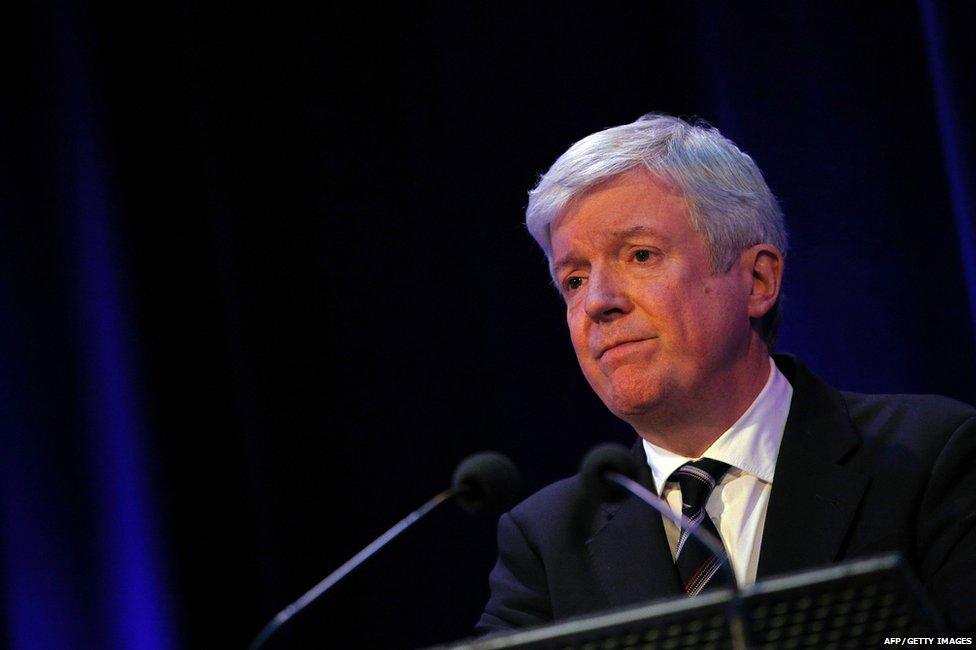
Tony Hall became the BBC's director-general in April 2013
The BBC's director-general Tony Hall said he accepted the report's conclusions.
He said he'd launch an independent audit of the organisation's whistleblowing and child protection policies.
"We are listening and we understand," he said, adding that the BBC had been "too hierarchical" and "too self-absorbed".
"We are all committed to creating an open BBC where everyone has the confidence to raise issues and have the confidence that something will be done about them."
The BBC has settled 36 claims with the victims of Jimmy Savile, paying out £526,000 in damages and £381,000 in legal fees.
Eight other claims were rejected.
For more stories like this one you can now download the BBC Newsbeat app straight to your device. For iPhone go here, external. For Android go here, external